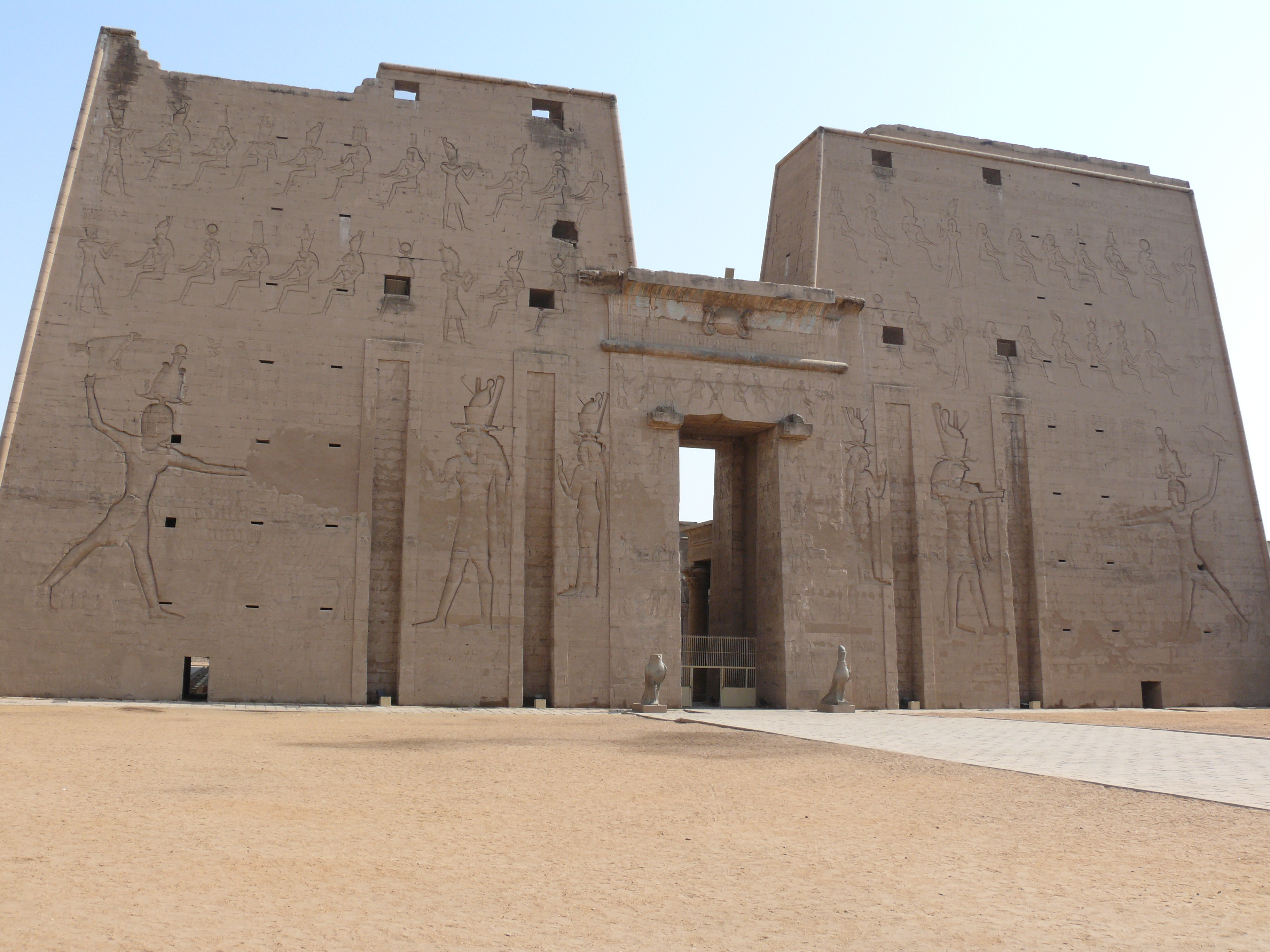 |
| The temple of Edfu, completed in 57 BC. |
Latter-day Saints since Primary are taught that reverence for God (especially in sacred space such as the temple) includes a softness of voice.
Rev’rently, quietly, lovingly we think of thee;
Rev’rently, quietly, softly sing our melody.
Rev’rently, quietly, humbly now we pray,
Let thy Holy Spirit dwell in our hearts today.
(“Rev’rently, Quietly” in the Children’s Songbook.)
D&C 88, received in December–January 1832–33, instructed the early Saints preparing to build the temple in Kirtland to make themselves fit for temple activity by “ceas[ing] from all your light speeches, from all laughter, from all your lustful desires, from all your pride and light-mindedness, and from all your wicked doings” (v. 121). This is repeated in the temple today, where participants in the Endowment ritual are instructed to avoid light-mindedness and loud laughter, among other things.
Given the temple context, it is apparent that this injunctive against laughter or noise in sacred space is to maintain reverence for God. “The depth of a person’s reverence is evident . . . in the way the person dresses and acts when attending church services and worshiping in the temple.” (Source)
Paul John Frandsen has a very interesting article on the ancient Egyptian “precepts and prohibitions relating to silence in the abodes of gods.”[1] Frandsen observes that some “texts specifying the conditions and rules to be observed prior to entering a temple also frequently mention a ban on raising the voice.” Below are the texts quoted by Frandsen. (I’ve omitted the Egyptian transliterations.)
From the temple at Edfu:
Do not do anything bad towards the priest of his house. . . . [D]o not be wide–mouthed when saying the spells, do not be loud of voice over the voice of another, do not swear an oath concerning anything, do not prefer falsehood to truth.
In P. Jumilhac those in the temple are instructed not “to raise the voice before [him, or, god], [or] to take big steps in his house.” According to an inscription on the door, the temple at Philae was called “the House of Silence.” This inscription then says that “being loud of voice in it and to walk briskly in the sanctuary” is taboo.
A priest at Abydos, according to his commemorative stele, was proud to announce, “I was not loud of voice in the house of silence, I did not take long steps inside the temple.” Finally, it is recorded in P. Boulaq, “Do not let the words be (too) numerous, be silent and it will serve you well. Do not say anything in the dwelling of god, shouting is” taboo.
The ancient Egyptians, like modern Latter-day Saints, understood that reverence for God in sacred space included using hushed voices.
[1]: Paul John Frandsen, “The Avoidance of Certain Forms of Loud Voices and Access to the Temple,” in Egyptian Religion: The Last Thousand Years: Studies Dedicated to the Memory of Jan Quaegebeur, ed. Willy Clarysse, Antoon Schoors, and Harco Willems (Leuven: Peteers, 1998), 975–1000.
